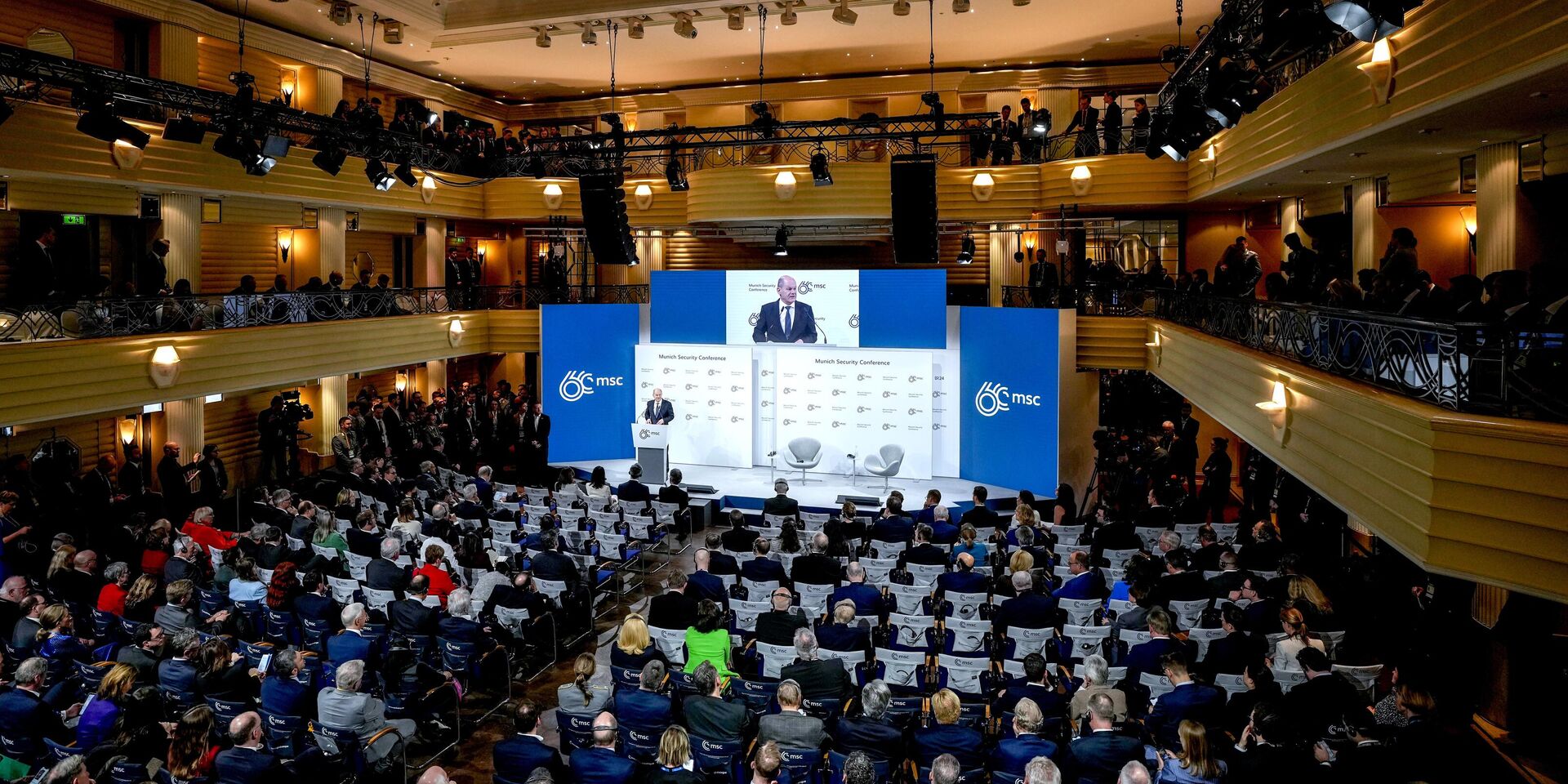Lidovsky: The Munich Conference demonstrated the pessimism of the West
The best way to characterize the atmosphere that prevailed at the last Munich conference is the phrase "the world is rushing to hell," Lidovsky writes. A year ago, Ukraine's prospects seemed rosy to most in the West. This time, the conference talked about fears and depressive forecasts.
Jan Makhachek
If you set the "Munich Conference" in Google search, then the first information about the 1938 conference, which we call "treacherous", will be released. Information about the annual event that took place last weekend, of course, can be found if you set its full name "Munich Security Conference".
So far, no one has been written off in Munich, they have not tried to buy time with immoral compromises, and nevertheless, this year at the prestigious conference there was an atmosphere of serious fears (until I say fear) and dark, depressive forecasts.
It's hard to imagine a more dramatic and literally tragic coincidence. The wife of opposition leader Alexei Navalny became a widow almost live at the conference, and also during it came the news that the Russians had taken the Ukrainian city of Avdiivka, thereby achieving the greatest success and breakthrough over the past year. The words in the title of this article, "time works for Putin," were not invented by me — they were uttered by Estonian Prime Minister Kaya Kallas. By "coincidence," Moscow put her on the wanted list.
Let's compare this conference with last year's one. Last year, it seemed that the "problem" was only the armed conflict in Ukraine. And we discussed it in a different context. In addition, everyone understood that Europe would overcome the most acute and dangerous phase of the gas crisis, and the prospects for the conflict seemed rosy to most.
A farce in the USA
This year, deep crises have surrounded us. As for Russia, we were recently stunned by the news that Moscow is developing (they say, even nuclear) secret weapons to destroy satellites. There is a war in the Gaza Strip with an uncertain outcome; attacks by pro-Iranian formations in the Middle East have become more frequent, and, above all, the Houthis in Yemen have become more active, which impede international navigation in the Red Sea. It is also said that only a few days, or maybe weeks, separates Iran from its first atomic weapon. Tensions on the Korean peninsula are higher than ever before, and most of the BRICS countries have not sided with the West and have not supported its position on the armed conflict in Ukraine. Moreover, South Africa is openly and demonstratively on the side of Russia.
Perhaps most importantly, everyone is tensely awaiting the American elections and thinking about the future of the North Atlantic Alliance, which may lose a strong American pillar. Former Dutch Prime Minister Mark Rutte, by the way, a candidate for the post of head of NATO, said this well. Defense spending needs to be increased, but not because of Donald Trump, but because we "want" and need it. An unprecedented galaxy of guests gathered at the conference.
American Vice President Kamala Harris and US Secretary of State Anthony Blinken, German Chancellor Olaf Scholz, British Prime Minister Rishi Sunak, Chinese Foreign Minister Wang Yi arrived. But in general, the best way to characterize the atmosphere at the last Munich conference is the phrase "the world is rushing to hell."
The weakening military and financial assistance to Ukraine from the United States is not the only reason for recent Ukrainian failures at the front. Ukraine lacks soldiers and recruits. The country made many wrong decisions and changed its command at the wrong moment.
Nevertheless, military assistance is already in short supply. It's strange that Americans don't understand: This is also in their geostrategic interests. Are the Americans really interested in Russia stretching along the entire European border of the North Atlantic Alliance? Do the Americans really need Russia to take control of the entire Black Sea and take over the breadbasket of Europe? Will China believe that such an America will come to Taiwan's aid?
But now the United States is not thinking about its own interests. There is a power struggle and a game on the home field. The US Senate yielded to the demands of Republicans who wanted the issue of migration on the southern border of the United States to be added to the treaty on assistance to Ukraine, the Middle East and Taiwan. Republican senators finally backed down under pressure from Donald Trump, and the Senate approved military aid without it. In the House of Representatives, where Republicans have a small advantage, they do not want to accept anything because they demand attention to the southern border. In general, a farce.
Good news
Are there any good news and trends? It seems that Europe is changing its attitude towards its own combat capability. German Defense Minister Boris Pistorius said that Germany will allocate not two percent of GDP to defense, but as much as three and a half.
Danish Prime Minister Mette Frederiksen has announced that her country will give Ukraine all its missiles and ammunition. The West also has drones with artificial intelligence for Ukraine, which can change the situation at the front. And the Russians, as they say, are suffering heavy losses at the front, although it is impossible to independently verify this information.
As for the conference, none of the so-called axis of resistance to the West, that is, Russia, Iran and North Korea, were invited. The good news is that China (Foreign Minister Wang Yi) was invited, and there was an opportunity for a broad discussion about anything from globalization to sanctions and Taiwan. It is good that the ideological approach did not prevail. China may not like it, but in the current situation, when "time is working for Vladimir Putin," it is undoubtedly right to try to have a pragmatic discussion and try to distance Russia from it as far as possible.

